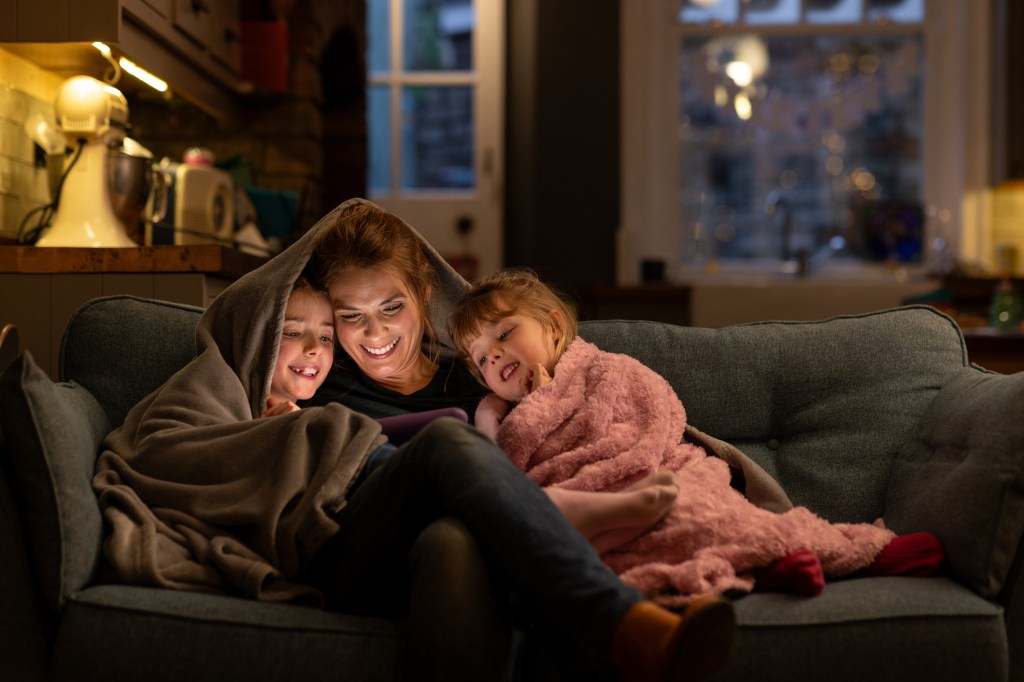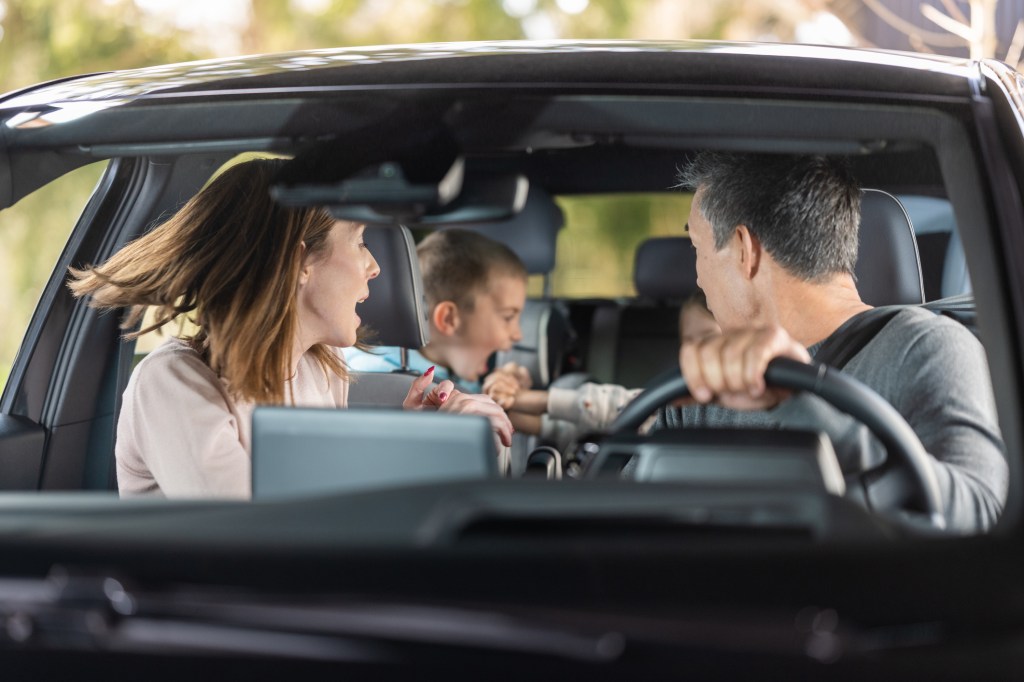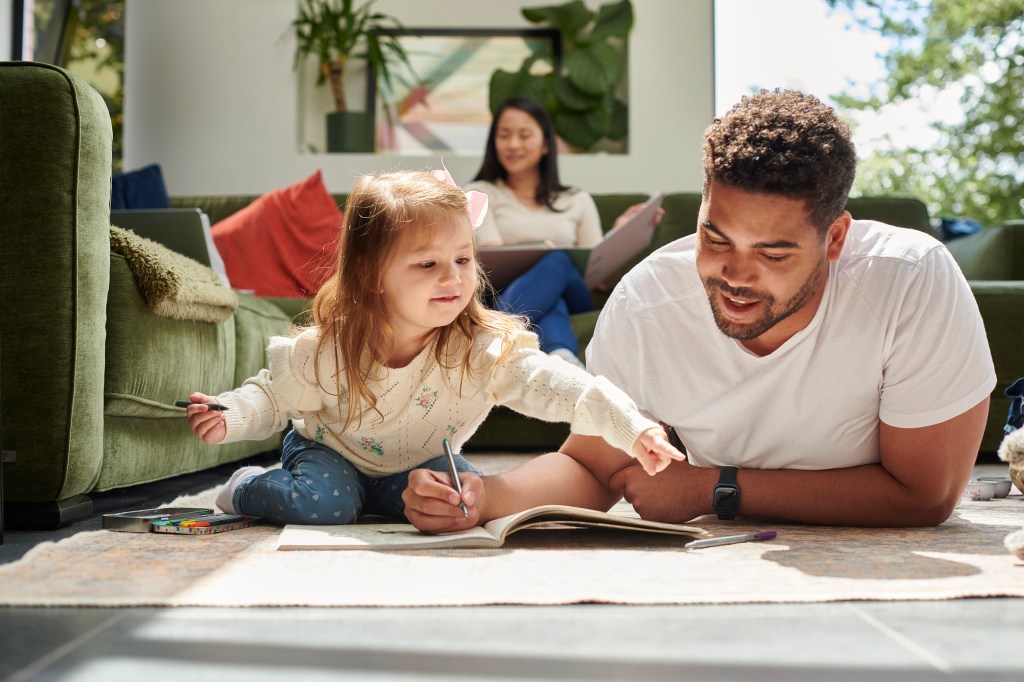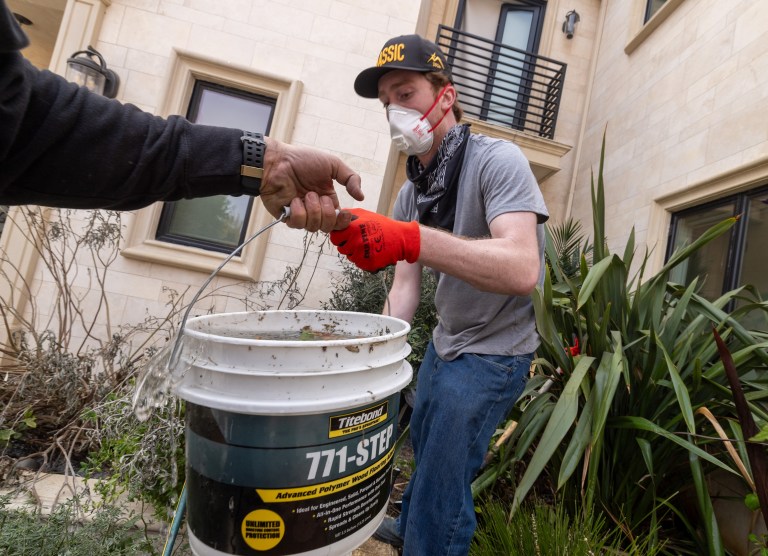This article was originally written by Livy Beaner for SWNS — the U.K.’s largest independent news agency, providing globally relevant original, verified, and engaging content to the world’s leading media outlets.
Even if today’s parents wanted to raise their kids just like their own moms and dads raised them (which is a big if), Gen Alpha and Gen Beta are growing up in a vastly different world — one where they’re navigating social media, the aftermath of a global pandemic, and economic unpredictability. Naturally, parenting styles have evolved to meet the younger generations where they are, and a new survey conducted by Talker Research revealed which ones are currently trending.
On behalf of educational child care organization Kiddie Academy, the research company polled 2,000 parents with kids ranging from newborns to age 6, giving them only 20 seconds to respond to prompts to get their instinctual answers. It found that cycle-breaking parenting, which focuses on healing generational trauma, was the top style on the rise. Though the strategy is used by 37% of participants, Gen Z parents are the most likely to adopt it.

Coming in a close second was attachment parenting, aimed at forming strong emotional bonds through physical closeness, followed by cause-and-effect parenting, which teaches kids that their actions have real-world consequences. However, 85% of participants said they believe there’s no one-size-fits-all approach, and the survey noted that modern parents combine an average of three parenting styles.
When it comes to Gen Z parents, they appear to be breaking away from their millennial counterparts in certain areas. They were the first generation to experience “gentle parenting” — but while 41% of millennials surveyed follow this method, only 32% of Gen Zers do.
Nearly half of Zoomers said that gentle parenting only works in some situations, and 38% said it has its time and place. The two generations also differ in how they decide which style to use: More than half of Gen Z parents focus on preparing their children for the real world, as opposed to 62% of millennials, who prioritize providing mental and emotional support.
But parents across the board are putting their kids’ needs above their own preferences: 7 in 10 said they choose parenting styles based on what’s best for their child. However, 40% admitted they want to be the “fun” parent, despite only 26% feeling like they actually are. Meanwhile, 1 in 5 believe they’re actually the “hard” or “strict” parent, though only 7% want to be viewed that way.
In addition to questions like these, the survey presented participants with real-life scenarios that they could be in with their kids. When asked what they’d do if their child were to knock everything off the shelf in a grocery store, 48% said they’d use gentle parenting — responding that they’d clean everything up alongside their kid and explain to them why their action was wrong.
But 32% chose a cause-and-effect strategy, saying they’d immediately make their child clean up on their own, and 31% said they’d apologize on behalf of their child to others around them, a decision that may reflect aspects of bulldozer parenting.
In another scenario, parents were asked what they’d do if their child was having a tantrum in the car, throwing things around the back seat and into the front seat. Yet again, the top technique was gentle parenting, with 44% of respondents saying they’d calmly explain why the behavior is dangerous.
The next three strategies — pulling over the car until the child had calmed down, waiting until they got home to give their child consequences, and taking all items for the remainder of the ride — all blend the cause-and-effect and traditional authoritative styles. But perhaps unsurprisingly, 39% of parents admitted their parenting style changes depending on whether they’re in public or in private.

“Results revealed that following a stressful situation with their child and upon further reflection, parents would handle an average of 55% of those scenarios differently. This underscores the fact that no one parenting style is the end all be all, especially since 84% of parents say their styles have evolved as their child gets older,” Joy Turner, vice president of education for Kiddie Academy, said in a news release. “Parents are learning along with their children, seeking to find the best way to support each other and adjusting as the journey unfolds.”
And the majority of parents believe parenting doesn’t end at home. Almost 4 in 5 (79%) responded saying it’s important that their child’s early education provider use the same approaches that they do at home.
“The good news is that almost half of parents (47%) are trusting their own intuition when it comes to parenting advice and guidance. But still, only 18% are leaning on their child’s daycare or early childhood education provider,” Turner said. “A child’s first five years are so important for their growth and development and leaning on your child’s early education provider can make all of the difference. You can still be the type of parent you want to be, and with your village behind you, you’ve got this.”
RELATED: How Do You Set Kids Up for Economic Upward Mobility? Parental Employment Is a Key Factor












